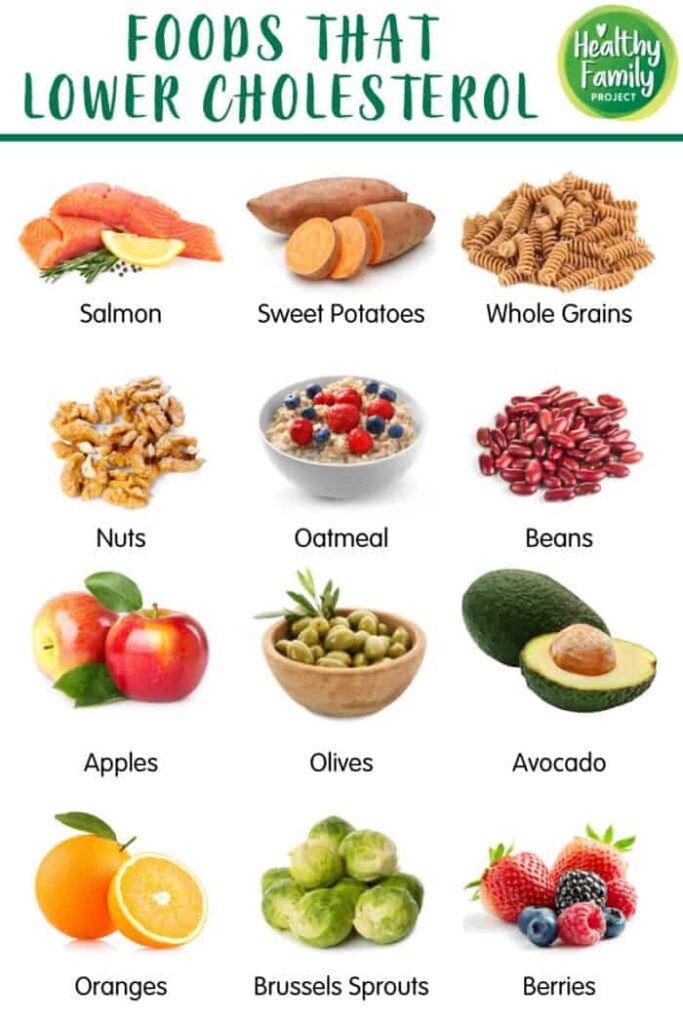
Cholesterol is a crucial component of our body, but having too much of the wrong type can lead to heart problems. The good news is that you can manage your cholesterol levels with the right diet. In this article, we’ll explore a variety of tasty and nutritious foods that can help lower your cholesterol levels naturally.
1. Oats and Whole Grains: One of the best ways to reduce LDL (bad) cholesterol is to incorporate more oats and whole grains into your diet. These foods are high in soluble fiber, which binds to cholesterol and helps remove it from your body.

2. Fatty Fish: Fatty fish like salmon, mackerel, and trout are rich in omega-3 fatty acids, which can lower triglycerides and reduce the risk of heart disease.

3. Nuts: Almonds, walnuts, and other nuts are packed with healthy fats, fiber, and plant sterols, which can help lower cholesterol levels.

4. Olive Oil: Olive oil, particularly extra virgin olive oil, is a heart-healthy choice. It’s high in monounsaturated fats and antioxidants that can reduce LDL cholesterol.

5. Legumes: Beans, lentils, and chickpeas are excellent sources of soluble fiber and protein, making them a great addition to your diet for cholesterol management.

In the quest for a healthier heart and a longer, more vibrant life, the foods you choose to consume play a pivotal role. When it comes to managing cholesterol levels, it’s reassuring to know that nature provides an array of options that are not only effective but also incredibly delicious. By incorporating these cholesterol-lowering foods into your daily diet, you’re taking a proactive step toward safeguarding your cardiovascular well-being.
Remember that these foods aren’t just a means to an end; they can be the foundation of a lifelong journey towards better heart health. While the list provided here is a fantastic starting point, the possibilities are endless. You can mix and match these ingredients to create meals that not only benefit your heart but also tantalize your taste buds.
It’s important to underscore that a balanced and heart-healthy diet doesn’t just consist of single magic ingredients. The key to success is diversity. Embrace a wide range of foods and experiment with various recipes. By doing so, you ensure that you receive a broad spectrum of nutrients, each playing a unique role in maintaining your cardiovascular health.